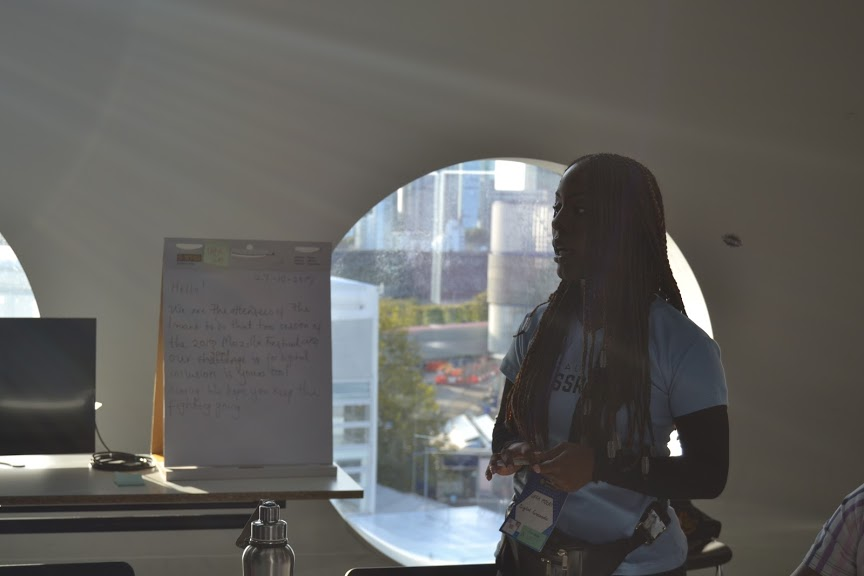
“The internet is fundamentally unequal,” says the introduction to a community adaptation of Mozilla’s Internet Health Report created by Digital Grassroots. Since 2017, this group led by Esther Mwema and Uffa Modey has worked to increase digital citizenship among young people whose voices are often left out of the debate about how to make the internet healthier for people worldwide.
In order to amplify these important voices, Digital Grassroots published a special edition report about internet health. The report looks at the work of eight young community leaders from five countries and shares their vision for fixing structural digital inequalities in underrepresented communities.
We asked Digital Grassroots President, Esther Mwema and Vice President Uffa Modey about what motivated them to publish the report, and what they learned along the way.
Q: What does internet health mean to you?
A: Internet health is a question of equality online. We pose this question in our Community Leaders for Internet Health Report to open a discussion on the role of underserved communities in the future of the internet. A healthy internet is informed by the fundamental principles of open technical standards, freely accessible processes for technology and policy development, transparent and collaborative governance and distributed responsibility for technical management and administrative functions.
Q: What role do you see for young leaders in the internet health movement?
A: Internet issues are not one size fits all. The reality of consumption and exploitation experienced by internet users differs across the globe. Therefore, we should not expect that internet best practices created in developed regions will be suitable to respond to the needs of users from underserved communities. It simply cannot work that way. What does it mean to have your voice heard as a digital citizen? Whose voice counts online?
Our goal with the Community Leaders for Internet Health program, which was part of the Mozilla Open Leaders X Program, was to introduce young leaders, like us, working on internet issues in an underrepresented community to concepts of internet health. We want to give youth, the digital natives, control of the digital future we want and that of future generations.
We expect a lot from young people. We expect that they will have the critical literacy, skills and funding to engage meaningfully and at par with established entities. Yet what we see is systemic failure to give young people the tools to solve the problems affecting us and our communities.
Q: What ideas did the eight community leaders uncover that you want to be more widely seen, heard and understood worldwide?
A: The participants from Belarus, Benin, Kenya, Mauritius and Uganda that we feature in our Internet Health Report are all solving structural digital inequalities in their communities with limited support; from teaching kids to code, to mapping the history of the internet, engaging rural youth in digital literacy, using artificial intelligence to prevent blindness, and ensuring child safety online.
Our Internet Health Report is giving space to these young leaders to highlight the internet issues they are trying to solve. Discussions about internet health tend to be very top-down which creates a big gap in who can shape the discourse, even though it is often the grassroots that face the brunt of these issues at an intimate level. The training and mentorship phase of getting to this report was the most crucial part for us to ensure a ripple effect that more young people gain the tools to engage in the internet health movement with autonomy, while staying true to their community needs.
We are staring system failure in the face. Young leaders are picking up the pieces with our own resources because, while the grassroots make for great research and articles of what is wrong with our (digital) world, many forget that there are real lives on the line. We don’t have the privilege of forgetting, because an unhealthy internet is the birthright we can’t escape.
